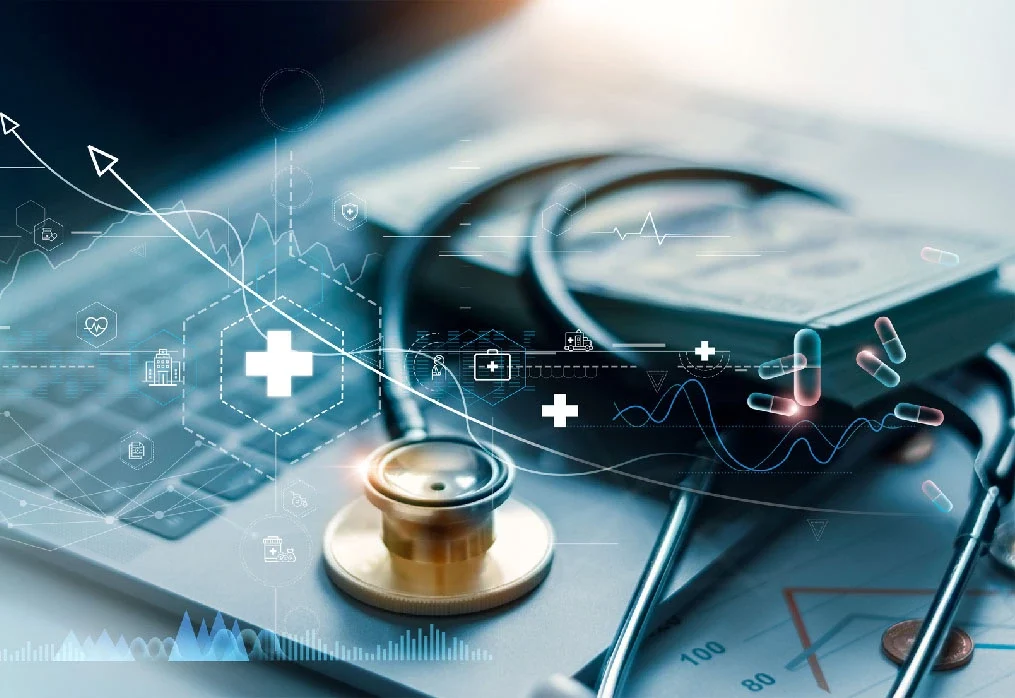Why is automation important in the healthcare sector?
Process optimization is also key in hospitals, healthcare centers and clinics to streamline tasks and secure data, improving productivity and patient care.
Table of contents:
- What is automated reconciliation?
- Data, a “treasure trove” that also shines in the healthcare sector
- The benefits of automation in healthcare
- Automating in hospitals and healthcare centers: who benefits?
- Automated work-life balance helps growth
The convenience of process automation is evident in various industries and companies, allowing its members to perform validations in a safe, agile and productive way.
The health sector does not escape this logic: as we will analyze in this Conciliac blog post, the proper management of health information is also relevant, in a field that after the Covid-19 pandemic has understood how important is the correct management of data.
What is automated reconciliation?
Before moving on to health information systems and the importance of efficient processes, let’s briefly look at what automated reconciliation is.
Reconciliation is key in companies and organizations of various industries, sectors and sizes. The purpose is to validate data, i.e., to check its veracity. For example, a bank reconciliation allows to know the financial status, identify possible errors in the accounting, and check the reliability of the records in the operations.
The automation of the reconciliation through specialized software is beneficial and advisable, since the manual process can be difficult and lead to errors that are frequent in human agents.
The advantages of reconciling with automated systems converge in the following aspects:
- Improved management of valuable resources such as time, effort and money.
- By freeing themselves from mechanical and repetitive tasks, a company’s people can focus on core business issues.
Data, a “treasure” that also shines in the healthcare sector
The importance of healthcare information systems also revolves around automation, just as it does in other sectors, always with the aim of optimizing processes and harnessing the power of data, which many define as “the oil of the 21st century”.
As we analyzed in Data, the most difficult patient for the healthcare industry, the Covid-19 pandemic that hit the world in 2020 and 2021 left many lessons, and one of them particularly concerns us: the relevance of reliable, accessible and ordered information.
Among its many consequences, the global healthcare crisis led to an increase in the volume and types of data, pushing participants in the field to definitely ride the wave of digitization.
“This increase in data in hospitals, healthcare centers and the entire associated industry, accentuated a trend mainly in the management areas: the need for truthful information in order to make the entire system run like a Swiss watch,” we indicated in the aforementioned review.
Once again, a desirable process is converging: automation, which adds value to human knowledge.
The benefits of automation in healthcare
Let’s return to the question that opened this review: why is automation important in the healthcare sector? Let’s look at some of the answers in the following items.
- In this industry, data accuracy is particularly important: information on supplies, patients, personnel, etc., is critical and errors lead to undesirable consequences in a sector where sensitive aspects such as well-being and health are managed.
- Automation streamlines tasks, improves profitability and cost management, and ensures data security, also in this area.
- Hospitals, health centers and clinics are complex structures, which require agile and efficient solutions.
- The use of specialized digital systems increases the productivity of healthcare professionals.
- It moves towards an integration of the organization’s data, facilitating the work of doctors and professionals who care for patients.
- Fewer errors translate into lower costs: automation software makes it possible to manage costs and increase profitability, especially by detecting failures or misdirected resources. These aspects are not foreign to hospitals.
- Work teams gain efficiency and work more harmoniously.
- Stock control is improved. These procedures help in the good management of materials and stocks, indispensable resources in the healthcare field.
- More dynamic access to information, which can be accessed quickly and accurately. For example, during a medical shift, the professional can make relevant queries without delay. This is especially crucial in emergency services, where every minute counts.
- More security: by using specialized software, regular updates, data encryption, backups, etc., are added. This is a necessary step to avoid the risks associated with the use of paper documents and digitized but unprotected information.
In short, automation in organizations in this sector is a kind of tuning system that makes processes work in synchrony, just like the instruments of a good orchestra.
Automation in hospitals and healthcare centers: who benefits?
In several articles in this portal we have highlighted the key role of automation systems to reconcile information in companies and businesses, providing security, agility and efficiency in terms of productivity and profitability.
Healthcare organizations are no exception: they are also structures in which order translates into benefits. It is clear that productivity is essential in this field, and that their administrative sector improves substantially thanks to advanced solutions that rely on digitization to enhance human work.
However, in hospitals, clinics and healthcare centers, automation also generates benefits for doctors and patients, some getting relevant information and good organization, others receiving a better quality of care.
The following example speaks for itself. Imagine that a hospital has invested in centralized automation software. Thus, each medical consultation has a pre-solved pathway: the professional can access relevant and validated information without detours, which obviously has an impact on patient satisfaction.
Automated reconciliation supports growth
The advancement of data management technologies also includes the healthcare industry. A unified solution such as Conciliac EDM offers database integration, reconciliation and validation of information, providing efficiency in the management of critical aspects such as the increase of consultations, the availability of supplies and the management of both personnel and financial resources.
